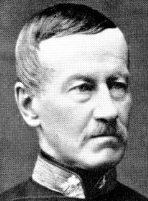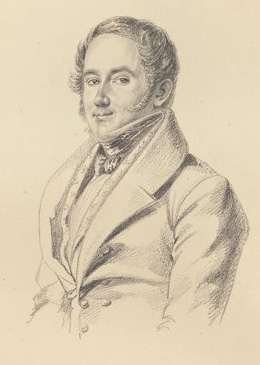|
Minister For Foreign Affairs (Sweden)
The Minister for Foreign Affairs ( sv, utrikesminister) is the foreign minister of Sweden and the head of the Ministry for Foreign Affairs. The current Minister for Foreign Affairs is Tobias Billström of the Moderate Party. History The office was instituted in 1809 as a result of the constitutional Instrument of Government promulgated in the same year. Until 1876 the office was called Prime Minister for Foreign Affairs ( sv, statsminister för utrikes ärendena, commonly known as ''utrikesstatsminister''), similar to the office of Prime Minister for Justice ( sv, justitiestatsminister). The Prime Minister for Foreign Affairs initially served as head of the Cabinet of Foreign Mail Exchange at the Royal Office. Following the ministry reform in 1840, the Prime Minister for Foreign Affairs became head of the newly instituted Ministry for Foreign Affairs. In 1876 the office proper of Prime Minister of Sweden was created and at the same time the Prime Minister for Foreign Affairs ... [...More Info...] [...Related Items...] OR: [Wikipedia] [Google] [Baidu] |
Coat Of Arms Of Sweden
The coat of arms of the Kingdom of Sweden ( sv, Sveriges riksvapen) has a greater and a lesser version. Regulated usage The usage of the coats of arms is regulated by Swedish Law, Swedish Code of Statutes, Act]1970:498 which states (in unofficial translation) that "in commercial activities, the coats of arms, the flag or other official insignia of Sweden may not be used in a trademark or other insignias for products or services without proper authorisation. This includes any mark or text referring to the Swedish State which this can give the commercial mark a sign of official endorsement. This includes municipal coats of arms which are registered." Any representation consisting of three crowns ordered two above one are considered to be the lesser coat of arms, and its usage is therefore restricted by law 1970:498. Variants The arms of Sweden were first formally codified by law in 1908. This law also formally codifies the differences between the "greater" and "lesser" arms. Th ... [...More Info...] [...Related Items...] OR: [Wikipedia] [Google] [Baidu] |
Style (manner Of Address)
A style of office or form of address, also called manner of address, is an official or legally recognized form of address for a person or other entity (such as a government or company), and may often be used in conjunction with a personal title. A style, by tradition or law, precedes a reference to a person who holds a post or political office, and is sometimes used to refer to the office itself. An honorific can also be awarded to an individual in a personal capacity. Such styles are particularly associated with monarchies, where they may be used by a wife of an office holder or of a prince of the blood, for the duration of their marriage. They are also almost universally used for presidents in republics and in many countries for members of legislative bodies, higher-ranking judges, and senior constitutional office holders. Leading religious figures also have styles. Examples Academia Traditional forms of address at German-speaking universities: *His/Her Magnificenc ... [...More Info...] [...Related Items...] OR: [Wikipedia] [Google] [Baidu] |
Independent (politician)
An independent or non-partisan politician is a politician not affiliated with any political party or bureaucratic association. There are numerous reasons why someone may stand for office as an independent. Some politicians have political views that do not align with the platforms of any political party, and therefore choose not to affiliate with them. Some independent politicians may be associated with a party, perhaps as former members of it, or else have views that align with it, but choose not to stand in its name, or are unable to do so because the party in question has selected another candidate. Others may belong to or support a political party at the national level but believe they should not formally represent it (and thus be subject to its policies) at another level. In running for public office, independents sometimes choose to form a party or alliance with other independents, and may formally register their party or alliance. Even where the word "independent" is used, s ... [...More Info...] [...Related Items...] OR: [Wikipedia] [Google] [Baidu] |
Baltzar Von Platen (1804-1875) (1898–1984), Swedish inventor
{{DEFAULTSORT:Platen, Baltzar Von ...
Baltzar von Platen may refer to: *Baltzar von Platen (1766–1829), Swedish naval officer and statesman * Baltzar von Platen (1804–1875), Swedish noble and naval officer *Baltzar von Platen (inventor) Baltzar von Platen (24 February 1898 – 29 April 1984) was a Swedish engineer and inventor. Biography Baltzar von Platen born in Malmö, Sweden. He was the son of Philip Ludvig von Platen and Eva Hedvig Ingeborg Ehrenborg. He first studied mat ... [...More Info...] [...Related Items...] OR: [Wikipedia] [Google] [Baidu] |
Carl Wachtmeister (politician)
Carl Wachtmeister may refer to: * Carl Johan Wachtmeister Count Carl Johan Wachtmeister (1 February 1903 – 22 May 1993) was a Swedish Army officer and fencer. He served as commanding officer of Norrland Dragoon Regiment (1952–1957) and the Stockholm Defence District (1957–1963). Career Wachtmei ... (1903–1993), Swedish fencer * Carl Wachtmeister (footballer) (born 1989), Swedish footballer {{hndis, Wachtmeister, Carl ... [...More Info...] [...Related Items...] OR: [Wikipedia] [Google] [Baidu] |
Elias Lagerheim
Elias is the Greek equivalent of Elijah ( he, אֵלִיָּהוּ ''ʾĒlīyyāhū''; Syriac: ܐܠܝܐ ''Eliyā''; Arabic: الیاس Ilyās/Elyās), a prophet in the Northern Kingdom of Israel in the 9th century BC, mentioned in several holy books. Due to Elias' role in the scriptures and to many later associated traditions, the name is used as a personal name in numerous languages. Variants * Éilias Irish * Elia Italian, English * Elias Norwegian * Elías Icelandic * Éliás Hungarian * Elías Spanish * Eliáš, Elijáš Czech * Elias, Eelis, Eljas Finnish * Elias Danish, German, Swedish * Elias Portuguese * Elias, Iliya () Persian * Elias, Elis Swedish * Elias, Elyas Ethiopian * Elias, Elyas Philippines * Eliasz Polish * Élie French * Elija Slovene * Elijah English, Hebrew * Elis Welsh * Elisedd Welsh * Eliya (එලියා) Sinhala * Eliyas (Ілияс) Kazakh * Eliyahu, Eliya (אֵלִיָּהוּ, אליה) Biblical Hebrew, Hebrew * Elyās, Ilyās, El ... [...More Info...] [...Related Items...] OR: [Wikipedia] [Google] [Baidu] |
Albrecht Elof Ihre
Baron Albrecht Elof Ihre (6 October 1797 – 9 August 1877) was a Swedish diplomat and politician who served as Swedish-Norwegian prime minister of foreign affairs 1840-1848 (acting 1840-1842). Ihre was employed in the Swedish Ministry for Foreign Affairs from 1823, serving as secretary of the Swedish legation in Constantinople from 1824, and chargé d'affaires there from 1827. He was appointed state secretary for foreign affairs in 1831. Ihre became Swedish Minister of Ecclesiastical affairs from 1840, and also served as acting Swedish-Norwegian prime minister of foreign affairs 1840–1842, and was Swedish-Norwegian prime minister of foreign affairs 1842–1848. Ihre, who was a grandson of the philologist Johan Ihre, was elected a member of the Royal Swedish Academy of Sciences in 1842, was awarded the title of baron in 1843 and a knighthood of the Order of the Seraphim in 1846. He was elected a member of the Swedish Academy The Swedish Academy ( sv, Svenska Akademien), f ... [...More Info...] [...Related Items...] OR: [Wikipedia] [Google] [Baidu] |
Gustaf Algernon Stierneld
Baron Gustaf Nils Algernon Adolf Stierneld (July 12, 1791 – November 14, 1868) was a Swedish politician. He served twice as the Prime Minister for Foreign Affairs from 1838 to 1842, and from 1848 to 1856. He was born, and died, in Stockholm. He studied at the universities of Kiel, Edinburg, and Uppsala. During the German Campaign of 1813 and the French Campaign of 1814 he served in Crown Prince Charles' (''Bernadotte'') chancellery and attended the conferences at Trachenberg (now Zmigrod, Poland), and Frankfurt. He also attended the peace congress at Kiel, which resulted in the Treaty of Kiel, where Denmark would cede Norway to Sweden. Starting in 1814 he served as the ''chargé d'affaires'' at The Hague and from 1818 to 1828 he was the Swedish envoy to London. See also *Sweden-Norway *Union between Sweden and Norway Sweden and Norway or Sweden–Norway ( sv, Svensk-norska unionen; no, Den svensk-norske union(en)), officially the United Kingdoms of Sweden and ... [...More Info...] [...Related Items...] OR: [Wikipedia] [Google] [Baidu] |
Adolf Mörner
Adolf (also spelt Adolph or Adolphe, Adolfo and when Latinised Adolphus) is a given name used in German-speaking countries, Scandinavia, the Netherlands and Flanders, France, Italy, Spain, Portugal, Latin America and to a lesser extent in various Central European and East European countries with non-Germanic languages, such as Lithuanian Adolfas and Latvian Ādolfs. Adolphus can also appear as a surname, as in John Adolphus, the English historian. The female forms Adolphine and Adolpha are far more rare than the male names. The name is a compound derived from the Old High German ''Athalwolf'' (or ''Hadulf''), a composition of ''athal'', or ''adal'', meaning "noble" (or '' had(u)''-, meaning "battle, combat"), and ''wolf''. The name is cognate to the Anglo-Saxon name '' Æthelwulf'' (also Eadulf or Eadwulf). The name can also be derived from the ancient Germanic elements "Wald" meaning "power", "brightness" and wolf (Waldwulf). Due to negative associations with Adolf Hitl ... [...More Info...] [...Related Items...] OR: [Wikipedia] [Google] [Baidu] |
Gustaf Af Wetterstedt
Count Gustaf af Wetterstedt (29 December 1776 – 15 May 1837) was a Swedish statesman. He was the Swedish Minister for Foreign Affairs from 1824 to 1837. In 1811, he was elected into the Swedish Academy, and later he also became a member of the Royal Swedish Academies of Agriculture, Music and Sciences (1817). In 1821, he was elected as a member of the American Philosophical Society in Philadelphia. He was invested Knight of the Order of the Seraphim. Among the treaties he negotiated and signed on behalf of Sweden were the Treaty of Örebro and the Treaty of Kiel The Treaty of Kiel ( da, Kieltraktaten) or Peace of Kiel ( Swedish and no, Kielfreden or ') was concluded between the United Kingdom of Great Britain and Ireland and the Kingdom of Sweden on one side and the Kingdoms of Denmark and Norway on t .... References and notes External links Gustaf af Wetterstedt- Svenskt biografiskt handlexikon (in Swedish) 1776 births 1837 deaths Members of the Swedish ... [...More Info...] [...Related Items...] OR: [Wikipedia] [Google] [Baidu] |
Independent Politician
An independent or non-partisan politician is a politician not affiliated with any political party or bureaucratic association. There are numerous reasons why someone may stand for office as an independent. Some politicians have political views that do not align with the platforms of any political party, and therefore choose not to affiliate with them. Some independent politicians may be associated with a party, perhaps as former members of it, or else have views that align with it, but choose not to stand in its name, or are unable to do so because the party in question has selected another candidate. Others may belong to or support a political party at the national level but believe they should not formally represent it (and thus be subject to its policies) at another level. In running for public office, independents sometimes choose to form a party or alliance with other independents, and may formally register their party or alliance. Even where the word "independent" is used, s ... [...More Info...] [...Related Items...] OR: [Wikipedia] [Google] [Baidu] |



